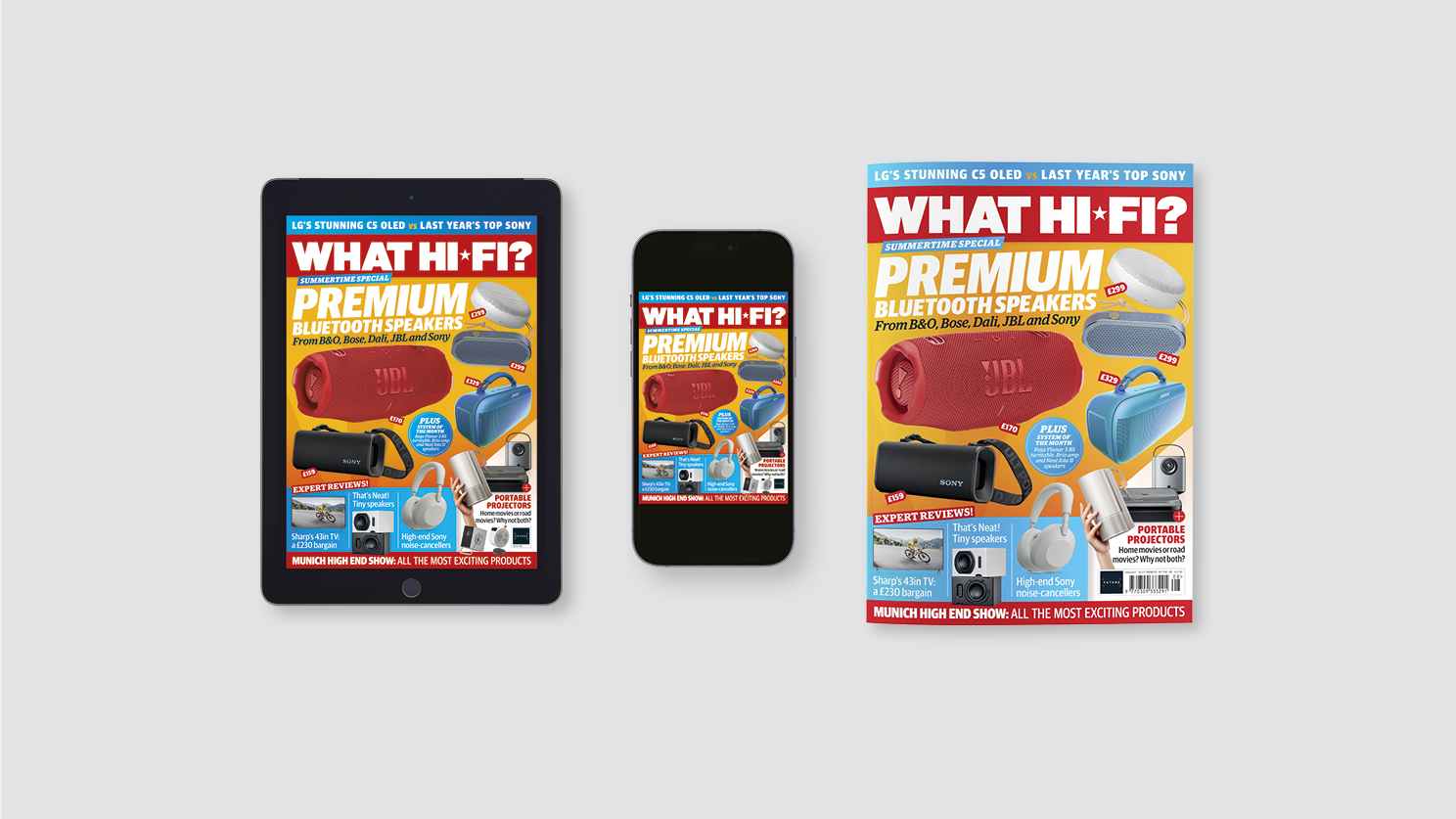USA: Never mind the lack of MP3 quality, feel the lack of MP3 breadth
Two things you thought you knew about MP3 and the iPod generation: one is that the quality of data-reduced music is acceptable – but only that – because you can cram so much music onto an easily portable device. The other is that there's so much music out there, the only problem is finding enough space on that portable device to store it all.
Wrong. And wrong.
Research from the States suggest that the download music status quo – and that could be only time you'll see me write those three words together – isn't quite as we'd imagined. For a start, it seems the core market for MP3 doesn't just tolerate the sound of MP3, but may actually prefer it over full-fat CD quality. And that comes not from a company with a vested interest, but a learned professor at Stanford.
Jonathan Berger, Professor of Music at the California university, has been carrying out experiments on each year's new intake of students. It's not quite as creepy as it sounds: for the past eight years the good Prof has been playing his students music in a variety of formats, including MP3, and has noted "not only that MP3s were not thought of as low quality, but over time there was a rise in preference for MP3s".
Berger feels that the data-reduction process gives music what he calls a "sizzle" – a metallic edge to it, and that as young people have become more familiar with that sound, the more they've come to like it.
He reckons it's a phenomenon rather akin to some of us preferring our music on vinyl rather than CD: "“Some people prefer that needle noise — the noise of little dust particles that create noise in the grooves. I think there’s a sense of warmth and comfort in that.”
The iPod sizzle
Mind you, while the iPod/MP3 sizzle may be the way forward for a whole generation's sonic preferences, it seems those same consumers are voting with their feet – or at least their mouse-clicking fingers – when it comes to what's available as downloads.
US market research firm NPD reports that while 13-17-year-olds bought a quarter less CDs last year, exactly as expected, they also cut back on their downloading and ripping of music. Why? Well, it seems they're not that excited by the music out there, or feel they have as much of the stuff as they can handle.
CD sales dropped 26% last year, according to the survey, but paid digital downloads also fell by half as much. OK, so some of that is down to that well-known euphemism, the Current Economic Situation, with 24% of the teenagers saying they had cut back on their spending. But almost as many – 23% – said they already had a suitable music collection, and didn't need any more right now, thank you.
Enough music, already...
NPD says that ""As the portable music player market matures, there's a greater chance that teens will have already acquired the bulk of their collections, which reduces the desire to buy music or the need to get more by sharing and swapping with others."
"In fact it's possible teens could start spending more time creating playlists and posting them online, than they would spend sharing actual song files."
Even 'free' sources of music saw drop-off, with the teens using peer-to-peer sites 6% less, and a 28% decline in the number of CDs they borrowed from friends to make ripped copies.
If all that looks a bit bleak for those record companies who've pinned their hopes on users buying music as downloads, it gets worse. The survey shows a surge of over 50% in online radio listening, while over 31% listened more to the US satellite radio services. Meanwhile 46% of those surveyed said they listened to music on social networking sites, up from 26% in 2007.
Enough bad news for the record companies? No? OK, here's the final kicker – the survey says that "54 percent of teens who heard a song they liked on MySpace Music were likely to simply listen to that song again on the site, compared with only 1 percent who claimed they would click through and buy the song on AmazonMP3, which is MySpace's online partner for purchased music downloads.”
Back to the future?
In other words, we're going back to the golden days of radio, before most homes even had a record player.
A whole generation prefers to listen to that MP3 "sizzle" rather than hi-fi quality, and really doesn't want to be bothered exploring any music it hasn't heard before, let alone buying the stuff.
In such a world, who'd want to be a new artist, let alone a record company executive?
Or indeed a professor of music...?
The latest hi-fi, home cinema and tech news, reviews, buying advice and deals, direct to your inbox.
Andrew has written about audio and video products for the past 20+ years, and been a consumer journalist for more than 30 years, starting his career on camera magazines. Andrew has contributed to titles including What Hi-Fi?, Gramophone, Jazzwise and Hi-Fi Critic, Hi-Fi News & Record Review and Hi-Fi Choice. I’ve also written for a number of non-specialist and overseas magazines.
